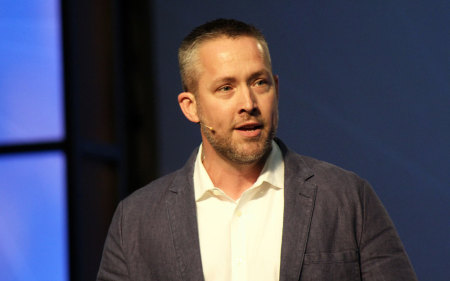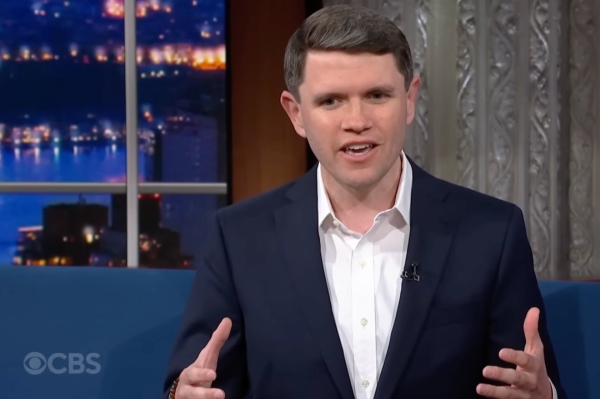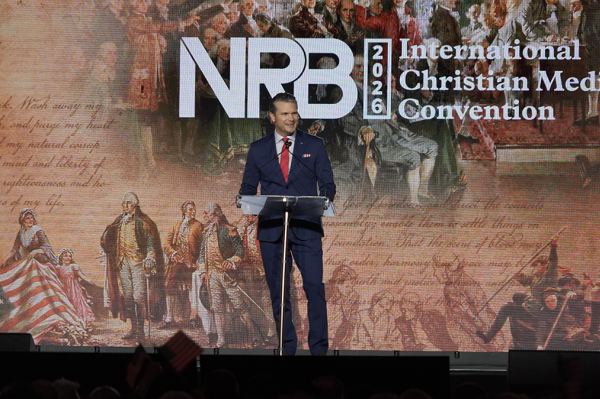JD Greear: If You Don't Give Generously You're Stealing From God

Money can be a touchy subject — how much you earn, how much you save, how much you give. While you may consider yourself to be a generous person, your habits might tell a different story. So how do you truly know whether you are generous or greedy? North Carolina-based Summit Church pastor J.D. Greear offers these three questions to determine who is really Lord of your money.
1. What Does God Want You to Do?
This question should guide every decision that Christians make, says Greear. Believers should seek God not only for matters of family and career, but also when it comes to money. Christians should ask God what He wants for their money and should be careful to do exactly what He instructs.
Matthew 6:33 bolsters Greear's point: "Seek first the Kingdom of God and his righteousness, and all these things will be added to you." The pastor reminds believers that money, family and career should all come second to Christ. He writes, "Always prioritize the Kingdom of God, and God will supply all that you need."
2. Does God Get Your First and Best?
Do you give to God first, or after your other obligations have been met? To illustrate this question, Greear uses the example of Cain and Able and how both brothers made offerings to God. Able gave the "firstfruits" of his flock by giving God the firstborn in his herd. Able's offering required faith since he gave without knowing how many more animals he would have. Cain, however, waited to see how much he had first and then made an offering to God out of his excess, which did not please God.
How many believers wait to pay their tithes until after all of their other "important" bills (mortgage, utilities, car note) are paid? "Whatever you give your first and your best to reveals what is truly God in your life," says Greear. " … We all give our first and best to something. It's that part of our life that gets top priority. And that shows what we treasure most."
The pastor makes an enlightening point when he addresses "spenders" and "savers." While neither group is wrong, Greear says " … both can grow out of proportion." Spenders often use money to enhance their image or level of comfort, and money becomes their significance.
Savers see money as trust in order to ensure a stable future. "When we look to money as our significance or our trust, something's gone wrong," the pastor writes, stressing that only God should fulfill those roles. "The problem isn't money itself; it's that money has kicked God off the throne as first and best."
3. Are You a Channel or a Reservoir of God's Blessings?
"When God blesses us richly, it's not to increase our standard of living. It's to increase our standard of giving," Greear shares, speaking about his philosophy on giving.
Greear says that believers are intended to be channels of God's blessings, not reservoirs, and that God blesses believers so that they can be a blessing to others. The pastor cites Apostle Paul who says, "You will be enriched in every way to be generous in every way," (2 Cor 9:10). For this scripture, Greear offers a bold interpretation. "What this means is that if you don't give generously, you're actually stealing. You are embezzling God's money."
To further illustrate his point, Greear uses the example of a nonprofit charity for the hungry, and how outraged donors would be if they learned that the majority of their contributions had gone to the CEO and not to the cause itself. He likens that example to the Church today.
"We are that CEO," says Greear. "Each person in the church is a 'nonprofit organization,' and God has made donations to us because he wants us to use them for his mission. If we sit on those donations or use them for our own luxury, we're taking what doesn't belong to us."
" … The more we cling to money as ours, the more it seems to slip away from us. … What you keep is all you'll have — and even that you'll lose eventually. But what you give, God multiplies."





















